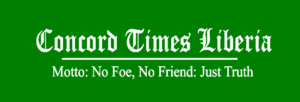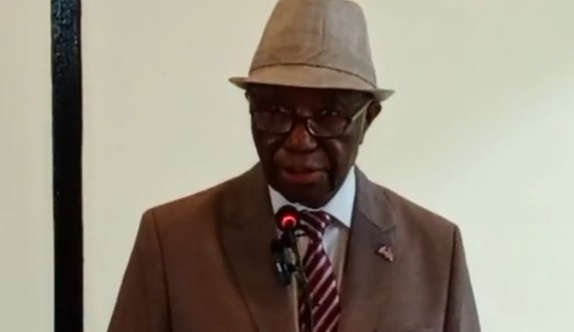Monrovia – Former Liberian Auditor General John Morlu has weighed in on a recent speech delivered by President Joe Boakai at the National Black Business Conference in the United States. Morlu noted that President Boakai’s address resonated with many, as he spoke passionately about Liberia’s rich natural resources and the potential for growth and prosperity. However, Morlu raised a critical question: are these aspirations truly achievable in a country plagued by rampant corruption?
According to Morlu, corruption has long been the Achilles’ heel of Liberia, stunting economic growth and eroding public trust. From the era of President William Tubman to the current administration, the shadow of corruption has tainted every aspect of governance. This grim reality raises doubts about whether any political leader, including President Boakai, can effect meaningful change when the very fabric of the system is so deeply flawed.
Morlu drew parallels to a famous IBM commercial from the 1990s, asking rhetorically, “Can anything good come from such a troubled place?” Unfortunately, he believes the answer leans toward no—a sentiment shared by many Liberians who have witnessed the persistent cycle of corruption for generations.
In his speech, President Boakai emphasized Liberia’s vast resources in forestry and agriculture, aiming to attract foreign investment. Yet Morlu expressed a sense of melancholy, noting that Liberia has a long history of exploitation. Outsiders have often taken advantage of the nation’s wealth while locals remain impoverished. This legacy of mistrust and mismanagement presents a significant barrier to attracting serious American investors, as the risks associated with a corrupt environment are simply too high.
While Morlu resonates with President Boakai’s vision, he stresses that without a concrete plan to combat corruption, initiatives such as the president’s ARREST agenda may fade into obscurity. Many past plans have promised much but delivered little, and Morlu asserts that until corruption is addressed directly, efforts to revitalize the economy will likely falter.
Though some within President Boakai’s inner circle may perceive Morlu’s calls for accountability as a threat, he insists that his intentions are rooted in a desire for genuine change, not discord. Having been an advocate for transparency since 1997, he remains hopeful for the future. “Perhaps by 2030, we can envision a Liberia where corruption is a relic of the past—a nation where jobs are plentiful and poverty is a distant memory,” he stated.
Critics may urge Morlu to step back and let President Boakai and his team govern without interference, arguing that his stance could alienate potential allies and undermine progress. However, Morlu believes that remaining silent while so many Liberians suffer from unemployment and a lack of opportunities would be a disservice. His commitment to fighting corruption is unwavering and grounded in a sincere desire for a better future for all.
Morlu expressed a strong sense of duty to protect President Boakai’s legacy from those who would undermine it—the “bollards, hyenas, and rattlesnakes” that inhabit every political landscape. “This is not a battle of personalities; it is a struggle for the soul of our nation,” he declared.
As Liberia moves forward, Morlu urges all citizens to join the fight against corruption. “The future is within our grasp, and together, we can create a Liberia free from the shackles of corruption. Let us channel our collective efforts into building a brighter tomorrow for generations to come.”








